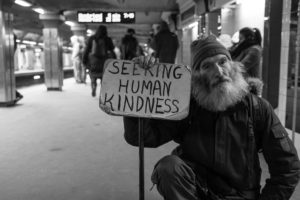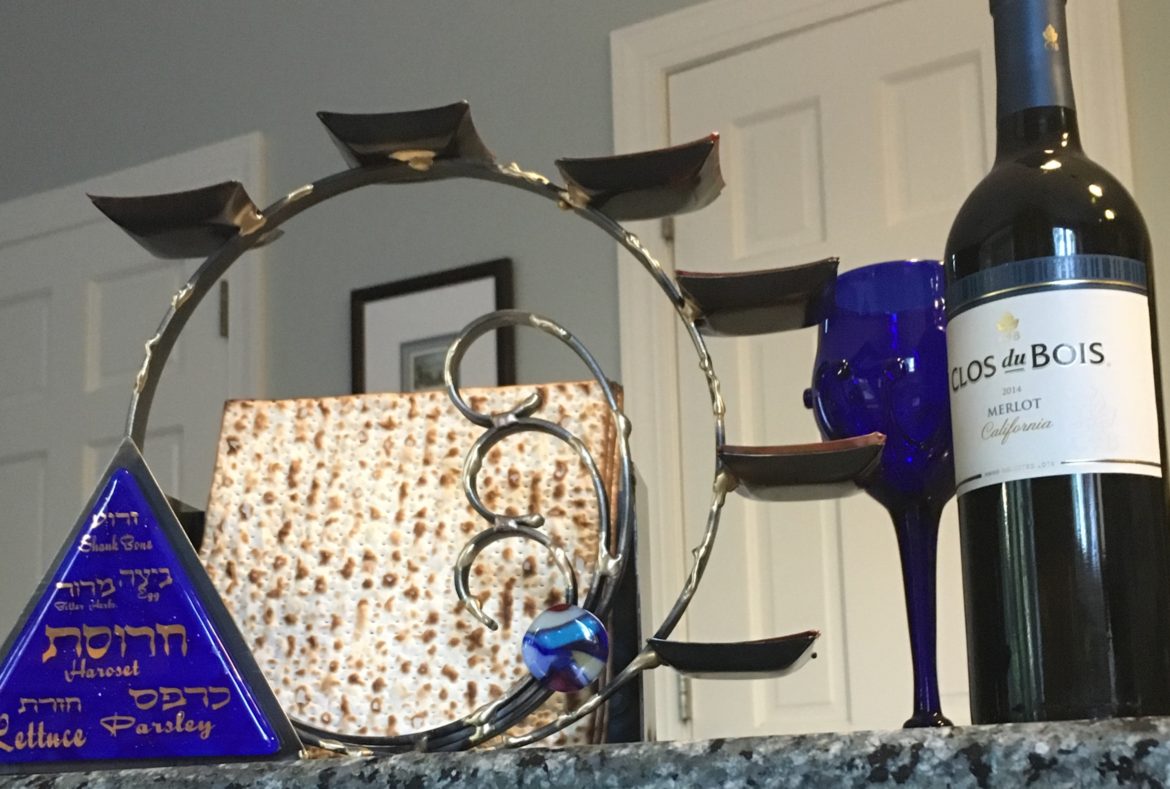Social Justice Readings for Your Passover Seder
Click here for printable Passover seder supplement
The Four Children Who Survived Mass Shootings
The student of Columbine, who witnessed the 1999 massacre in his high school asks: “How could such evil happen in the hallways of my school?”
The Virginia Tech college student who saw the 2007 massacre and wept at the makeshift memorial questions: “Why are we not safe on our college campuses?”
The second grade survivor of Sandy Hook Elementary School’s 2013 mass shooting who is too young to ask: “Will I ever be safe?” Yet his restlessness and sleeplessness speak for him.
The youth of Parkland, too angry to ask, who are instead demanding of our elected officials, “If you do not change the access to guns and make our students safe, then we will hold you accountable and put someone in office who will.”
The Bread of Affliction and Bail
by Rabbi Judy Schindler and Jake Sussman
The broken middle matzah represents lives and families broken by our justice system, which treats you better if you are rich and guilty than if you are poor and innocent.
Ha lachma anya di achalu avhatana b’ara d’mitzrayim. This is the bread of affliction that our ancestors ate in Egypt. This is the bread of affliction that the poor in our jails eat today.
Our county jails across this state are filled with men, women, and children who are innocent until proven guilty, and yet they are not free – not because they are dangerous but simply because they are poor. They are locked away because they cannot afford to purchase their freedom.
To be detained in jail is to be taken from one’s home, one’s job, one’s family. This separation –whether for one day, one week, one month, or one year — has devastating consequences for our brothers and sisters and for our communities.
It is not only freedom upon which we place an unjustified price tag. We do the same when it comes to the simple operation of our system. We underpay and undervalue our judges, prosecutors, public defenders, clerks, and the entire infrastructure of our system. This self-imposed scarcity of funds for our justice system results in a scarcity of justice.
Ha lachma anya di achalu avhatana b’ara d’mitzrayim. This is the bread of affliction that our ancestors ate in Egypt. This is the bread of affliction that the poor in our jails eat today.
#metoo and Women’s Roles in Redemption
by Rabbi Judy Schindler
In the traditional Haggadah, the women, who were essential players on the path to liberation, are not mentioned.
In the modern Haggadah, we celebrate their critical roles:
Moses’ mother, Yocheved — who in the midst of slavery had the faith to bring a baby into this world;
The midwives, Shifrah and Puah — who in an act of civil disobedience defied Pharoah’s orders to drown newborn Israelite males;
Moses’ sister, Miriam — whose protective presence enabled her brother to sail safely down the Nile into loving arms and led our people as a prophetess;
And Pharaoh’s daughter, whom the Rabbis named Batya, the daughter of God — who saved and raised the Hebrew child, Moses, as her own.
In years gone by, so many of the women who were essential players in the building up of our country were not given their fair share… of credit, of pay, of a recognized place in our history.
This year we celebrate their crucial role in creating change. Tonight we celebrate the women:
who have courageously shared their #metoo stories,
who have tirelessly marched for change,
who have boldly run for office,
and who recognize that the time has come for equality – to walk in safety, to work with security, to be paid equally, to be seen and heard and valued not for how they look but for who they are.
It will be enough – Dayeinu & A Place to Call Home
by Judy Seldin-Cohen

If we had enough shelter beds for all the men, women and children who are experiencing homelessness in our city, lo dayeinu, it will not be enough.
If we had enough homes for all but they are too expensive for Charlotteans who earn low wages,
lo dayeinu, it will not be enough.
If we have enough homes but they are all in high-poverty neighborhoods with poor performing schools, lo dayeinu, it will not be enough.
Dayeinu – it will be enough…
When we have homes that are affordable
in neighborhoods that are diverse
that offer a solid childhood education
and opportunities for sharing social capital
to break the cycle of generational poverty.
Dayeinu – it will be enough.



No Comments